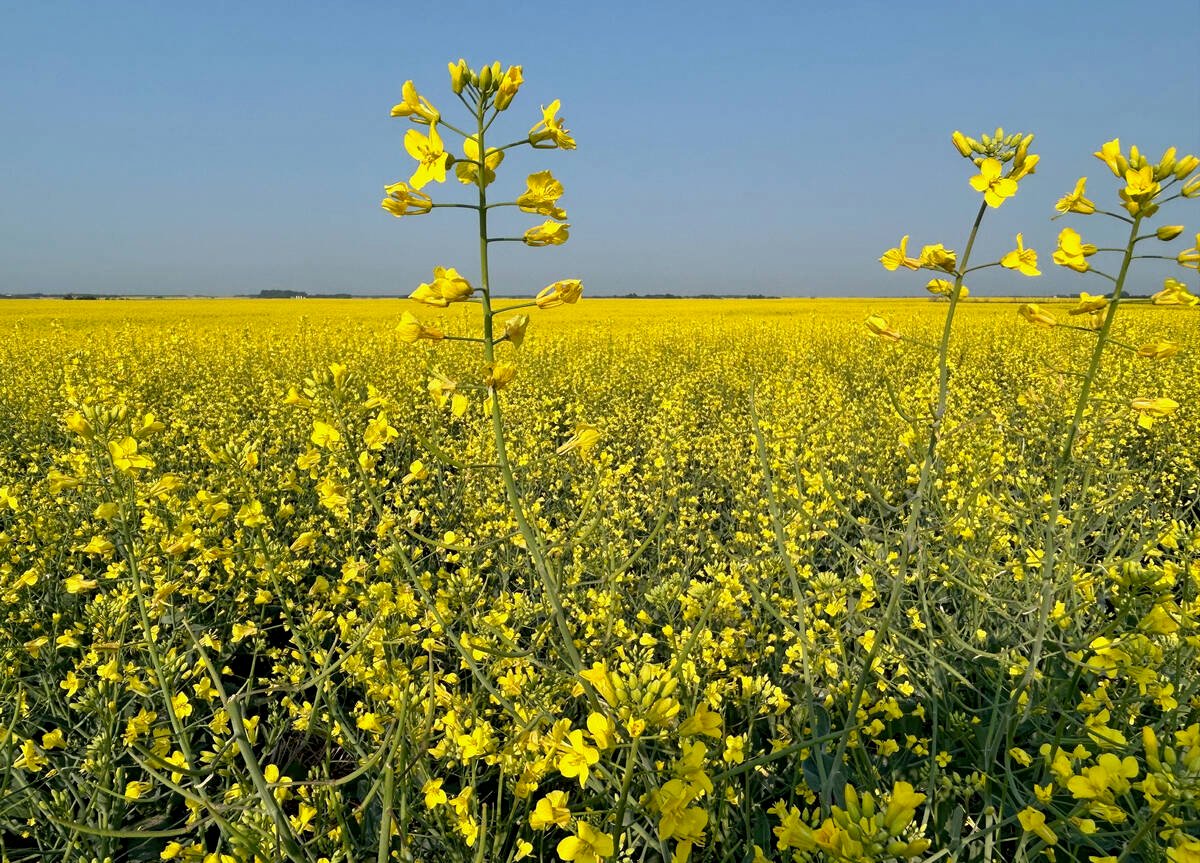While some short-line railways and supporters warn that the demise of the Canadian Wheat Board monopoly will hurt them, national railway officials were in Ottawa to offer some assurances.
Senior Canadian National and Canadian Pacific Railway officials were at the Senate agriculture committee Dec. 7 to insist the grain handling and transportation system will continue to function efficiently.
“While the removal of CWB’s role in transportation will bring changes in many grain supply chain relationships, please rest assured we will be ready to adapt to the changes by August,” said CN vice-president of network strategies Franois Hébert.
Read Also

Record canola harvest expected
Anecdotal reports from agronomists, crop production advisors, landowners and grain industry reps, combined with provincial reports, indicates that canola yields could break the yield record set in 2016
He also insisted that short lines will remain a key part of the system if farmers continue to use them to move their grain.
“We are confident that these lines will remain viable in a post-CWB environment.”
Michael Adams, general manager of grain marketing for CPR, said the same promise holds for producer cars in the new system.
“If producers continue to input their service requests through the Canadian Grain Commission, we will continue to place cars against those orders,” he said.
“We see no change in that. It is a relatively small part of our business but it is an important part of our share and we are not prepared to let it go.”
For Conservative questioners, it was what they wanted to hear.
Prince Edward Island Conservative senator Mike Duffy asked if the critics are correct that smaller country elevators should have guaranteed access to rail service and port storage.
Adams said CPR believes in the power of the commercial system.
“We are confident that this change opens up options for farmers and helps progress the industry to a more current commercial environment.”
Duffy approvingly took that to mean: “If there is a buck to be made, you will be making it. You are doing business with everyone you can.”
But Nova Scotia Liberal senator Terry Mercer was not satisfied with the optimistic answer.
“Do you see any weaknesses in the system or do we need to add regulations or some guidelines to protect the small farmer, the small producer, in the system so he or she has continued access to reasonably priced cars in a timely fashion?” he asked.
Adams said no and suggested the opponents of the CWB move should not be so afraid. It worked for CN after it was privatized.
“Honestly, I think the Canadian government has found a balance between regulation and free market, protecting shippers and making sure profits are made to reinvest,” said the CN executive.
“I think we have found a very good balance. I have learned that change has been good and less regulation has been good too. I think the producers are very well protected the way it is because we want grain to move, we want their grain.”
















